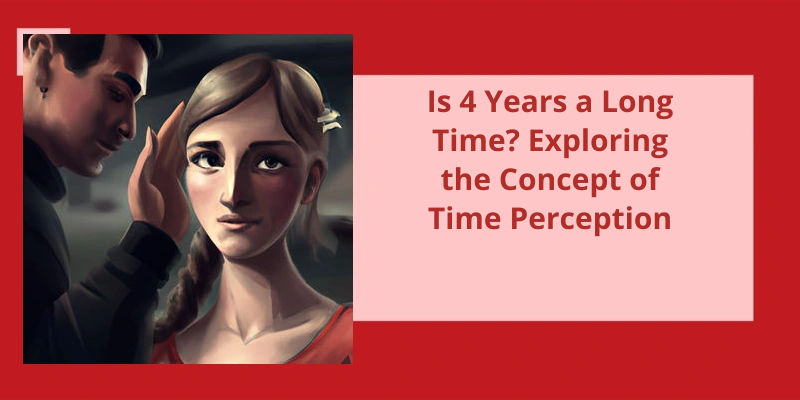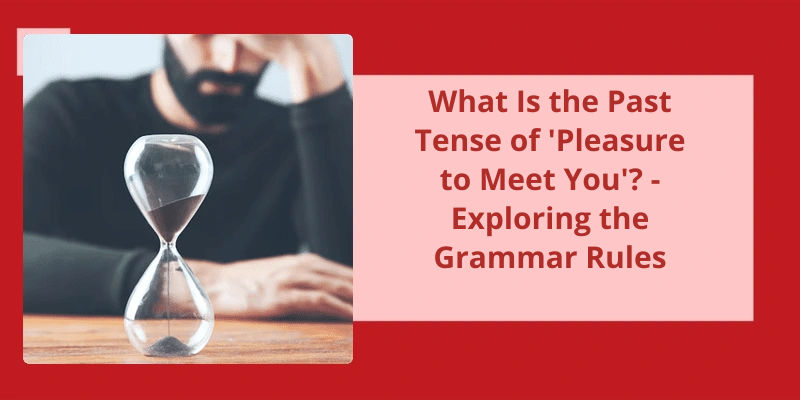As human beings, we’re wired to seek out companionship and connection. It’s natural to feel drawn to someone we find attractive or interesting. However, when we find ourselves in the presence of our crush, we may experience some physical sensations that we can't quite explain. Have you ever noticed your heart racing a little faster when your crush walks into the room? Or perhaps you start to feel a little sweaty and flush in their presence? These reactions aren’t uncommon, and they can be attributed to the powerful chemicals that are released in our brains in response to attraction. While the feeling of being enamored by someone can be exhilarating, it can also leave us feeling a little flustered and unsure of how to act. Understanding the science behind these reactions can help us better navigate our own emotions and behaviors when we find ourselves in the presence of someone we find particularly appealing.
Why Do I Feel Weird When I Think About My Crush?
As you begin to fantasize about your crush more and more, your brain starts releasing dopamine, which is the feel-good chemical associated with reward-seeking behavior. And when you’re unable to obtain that reward (i.e. a relationship with your crush), your mind can become fixated on finding ways to achieve it. This can lead to feelings of anxiety, stress, and even depression.
Furthermore, when we develop strong crushes, we tend to idealize the object of our affection. You may be projecting qualities onto your crush that they don’t actually possess in order to make them seem more desirable to you. This can create a feedback loop where you become more and more obsessed with the idea of being with them, even if the reality might not live up to your expectations.
It’s important to note, however, that having a crush is a totally normal and natural experience. It can be exciting and exhilarating to have feelings for someone, especially if theyre reciprocated. But if those feelings start to interfere with your daily life or cause you undue distress, it may be time to take a step back and evaluate why your crush has become such a fixation.
Ultimately, the best way to deal with a crush is to be honest and open with yourself about your feelings. Try to figure out what it’s about your crush that’s so appealing to you, and whether or not pursuing a relationship with them is actually feasible or even desirable. It can be helpful to talk to a trusted friend or counselor about your thoughts and emotions, and to develop healthy coping mechanisms for when those intrusive feelings start to overwhelm you.
The Difference Between a Crush and Love, and How to Recognize the Signs.
- Crush is a temporary feeling, whilst love is a lasting emotion.
- A crush is often based on physical attraction, whereas love involves a deeper connection.
- If you constantly think of someone, feel nervous around them, and have butterflies in your stomach, it might be a crush.
- On the other hand, if you feel supported, respected, and comfortable around someone, it might be love.
- Crushes are often short-lived, whilst love can last a lifetime.
- It’s important not to confuse a crush with love, and to take time to cultivate a meaningful connection with someone.
Blushing can be both embarrassing and endearing, but why does it happen when we’re around our crush? Let’s take a closer look at the science behind this phenomenon.
Why Do People Blush Around Crush?
This is known as the blush response. It’s an involuntary reaction that occurs due to the release of stress hormones, which can cause your face to turn red. The human body is programmed to react to potential romantic partners in this way, as it indicates to the other person that you’re interested in them.
However, blushing around your crush can also be a sign of nervousness or shyness. It can be a way of revealing vulnerability and expressing the intensity of your feelings towards your crush, without having to say anything out loud.
Our bodies are wired to react in certain ways when we encounter someone who we feel a deep attraction towards.
The Psychology of Crushes and Infatuation
The psychology of crushes and infatuation refers to the complex emotions and thoughts that arise when someone is strongly attracted to another person. It involves a range of psychological processes, including heightened arousal, idealization, and attachment. These feelings can be intense and all-consuming, but they often have little to do with genuine love or compatibility.
Not only does being in love bring about feelings of happiness, but it can also have physical effects on our bodies. One of these effects is feeling hot, which can sometimes be a bit confusing. However, there’s a scientific explanation for this phenomenon. When we’re in love, our brains release a hormone known as cortisol, which is associated with stress. This release of cortisol is one of the reasons why we feel hot when in love. So, let’s take a closer look at the connection between love, cortisol, and feeling hot.
Why Do I Feel Hot When I’m in Love?
This sudden surge of cortisol can cause your heart rate and blood pressure to increase, which in turn can cause the temperature inside your body to rise. The increase in body temperature can also be due to an increase in metabolism, brought about by the release of certain hormones associated with love and attraction.
Additionally, when youre in love, you experience a rush of adrenaline and dopamine, which can cause your body to experience a physical response, such as sweating or blushing. These physiological responses can cause you to feel hot and flushed, especially when youre around the person you love.
Touch, especially intimate touch, can cause your body temperature to rise due to the release of oxytocin, a hormone associated with bonding and attachment. This can be experienced as an overall feeling of warmth or a hot flush in specific areas of the body touched by your loved one.
As we explore the world of limerence, it’s important to understand the science behind this emotional state. From the chemical reactions in our brains to the physical changes in our bodies, limerence can be a complex and powerful force. So why do we feel warm when we think about our crush? Let’s dive deeper into the fascinating world of limerence and find out.
Why Do I Feel Warm When I Think About My Crush?
It’s a complex mixture of emotions and hormones that flood our brains when we think about our crush. This feeling is caused by the release of dopamine, a neurotransmitter that activates the pleasure centers of the brain. Dopamine causes us to experience a rush of pleasurable emotions that can make us feel warm and fuzzy inside.
The body releases other hormones as well, including adrenaline and norepinephrine. These hormones are responsible for the exciting and intense feelings we experience when we’re first attracted to someone. They increase our heart rate and blood pressure, causing a physical response that can make us feel warm and tingly all over.
There’s also a psychological component to these feelings. When we’re attracted to someone, our brains release oxytocin, a hormone that promotes bonding and intimacy. It can make us feel warm, safe, and secure in their presence.
In many ways, the warm, fuzzy feeling we experience when we’re attracted to someone is a natural and normal response. It’s a sign that our bodies and minds are responding to a potential mate in a positive way, and that we’re open to the possibility of forming a romantic connection. However, it’s important to remember that these feelings can also be fleeting and may not always be a reliable indicator of long-term compatibility or happiness in a relationship.
But there’s more science to the rise in body temperature during romance than just the physical activity. Let’s delve deeper into why this happens and what it means for our bodies and relationships.
Why Does Body Temperature Increase During Romance?
But the rise in body temperature during romance isn’t just due to physical exertion. There’s also a psychological component at play. When we engage in romantic activities, our bodies release a neurotransmitter called dopamine. This chemical is responsible for feelings of pleasure and reward, and it activates the same regions of the brain as cocaine. Dopamine can increase heart rate, blood pressure, and even body temperature.
Furthermore, the act of intimacy itself can play a role in raising body temperature. Our bodies release a hormone called oxytocin during intimate moments. Oxytocin is often called the “love hormone” because it’s associated with feelings of closeness and bonding. This hormone can cause a rise in body temperature, as well as a decrease in stress hormones like cortisol.
When we’re close to another person, our bodies exchange heat. This can happen through skin-to-skin contact, but also just by being in close proximity to one another. The warmth generated by this physical closeness can cause our body temperature to rise.
While the physical exertion of intimacy definitely plays a role, so do the effects of hormones and neurotransmitters on the body.
So why does this happen specifically when you’re talking to your crush? Well, it’s likely due to a combination of nerves and attraction, both of which can cause your body to react in interesting ways. In this article, we’ll explore some of the science behind blushing and what it might mean for your relationship with that special someone.
Why Does My Face Get Hot When I Talk to My Crush?
Additionally, when you talk to your crush, you may feel nervous or anxious, which can also cause your face to flush. This is due to the release of adrenaline, a hormone that prepares your body for a “fight or flight” response. The increased blood flow to your face is a natural physiological reaction to stress or excitement.
It’s also possible that your face gets hot when you talk to your crush because you’re physically closer to them than you normally would be with other people. When you’re in close proximity to someone, your body can react by releasing heat, causing your face to feel warm. Additionally, if you’re attracted to your crush, your body may be more sensitive to their presence, making you more prone to blushing or feeling flushed.
When you feel unsure of yourself, it can cause your body to release stress hormones, making you more prone to blushing or feeling warm. This is particularly true if you’re worried about saying the wrong thing or being embarrassed in front of your crush.
It’s a sign that you’re emotionally invested in the conversation and that your body is responding to the excitement and stress of the moment. Rather than feeling embarrassed or self-conscious about your reaction, try to embrace it as a sign of your feelings for your crush.
It’s a combination of physiological reactions, emotional responses, and social dynamics that all come together to create this common phenomenon. While it can be frustrating or embarrassing at times, it’s also a sign that you’re alive and feeling deeply. So embrace your blushes and enjoy the thrill of talking to someone you care about.
Can Blushing Be Controlled? Tips on How to Reduce Blushing
Blushing is a natural physiological response and can be difficult to control completely. However, there are certain techniques that can help reduce the likelihood and intensity of blushing. Some tips include identifying and avoiding triggers, practicing relaxation techniques, and desensitization through exposure therapy.
Source: How to Stop Blushing and Prevent It from Happening
Conclusion
In conclusion, feeling hot around your crush is a perfectly normal physiological response to attraction. It all comes down to the chemical reactions in your body that occur when you’re drawn to someone. The release of oxytocin, dopamine, and norepinephrine creates a rush of emotions and sensations that are hard to ignore. While it may seem embarrassing or uncomfortable, it's important to remember that these feelings are a natural part of the human experience. So embrace those sweaty palms and racing heart, and let them guide you towards a deeper understanding of yourself and the people around you.






